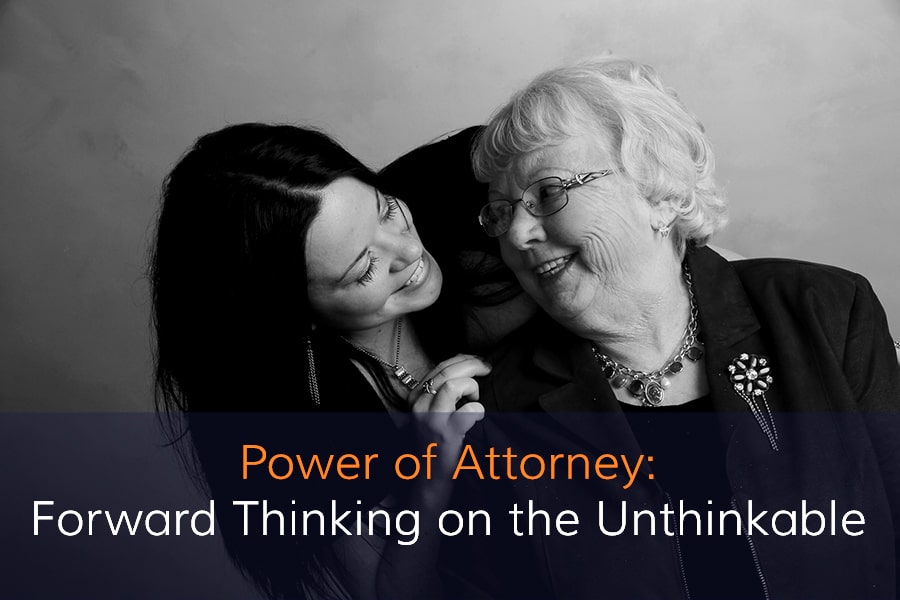Lasting Power of Attorney
What it is, why you need it and how to get it right.
Need this in print? Download a pdf of Tiger Law’s Guide to Lasting Power of Attorney
We’ll start this by wishing you a long, happy and healthy life. But…may we be blunt? None of us is invincible and sometimes bad stuff happens when you least expect it. It happens to us and it happens to people we care about. It happens to people who have children and dependants, pets, businesses, employees, property and investments. Responsibilities. And when it happens, it can cause a host of practical problems way beyond the sometimes explosive personal and emotional impact.
Conferring Lasting Power of Attorney (LPA) on someone you trust is the legal way to ensure your affairs can be taken care of if you are unable to deal with them yourself due to incapacity. It’s not difficult or expensive to arrange and it can protect those who have to pick up the pieces from a great deal of difficulty and expense.
Obtaining authority to act on someone else’s behalf due to their incapacity to handle their own responsibilities can be done when there is no LPA in place and Tiger Law can help if you are faced with a situation where someone you care for has become incapacitated unexpectedly without an arrangement in place.
But the fact is, it’s far more stressful and can easily take several months to sort out, during which time all sorts of people and situations that depend on your decisions or payments will be left in limbo.
A little forward thinking about the unthinkable now can go a very long way towards minimising those problems, especially if you own a business. And so we’ve put together a guide to the various kinds of LPA arrangement. Get it sorted and it will hopefully be something you will never have to think about again. But others may be extremely grateful you took the time to do it now. Read on…
What is a Lasting Power of Attorney?
A Lasting Power of Attorney (LPA) allows you to appoint someone (or more than one person) to act for you if you are unable to do so yourself.
There are two types of LPA, one is for property and financial affairs, the other is for health and welfare. You can have either or both types of LPA.
With a financial LPA that authority begins as soon as it is registered and continues even if you lose the mental capacity to make decisions for yourself.
However, if you do not have an LPA in place and you lose mental capacity, your representative(s) will have to make an expensive and time-consuming application to the court in order to act on your behalf.
Health and Welfare LPA’s only come into force if you lose the mental capacity to act for yourself.
Anybody who is over 18 and understands what they are signing, when making an LPA, can make an LPA.
In the context of Power of Attorney under UK Law, the term “attorney” means a “person of trust”, for example, a family member, friend, business or life partner or a professional who may or may not be a solicitor. It’s up to you who you appoint to manage your affairs in a particular circumstance or in the event you are incapacitated.
LPAs for property and financial affairs
This type of LPA allows your attorney to deal with your financial affairs, for example to pay your bills, sell your property or investments and operate your bank accounts.
Unless you specify otherwise in your LPA, your attorney can use your LPA while you still have capacity to make financial decisions yourself.
If you allow your attorney to make decisions before you have lost mental capacity, it does not mean that they automatically take all financial decisions for you, it just means that they can take these decisions if you allow them to at the time – they still have to have your permission to make these decisions.
Therefore, a Financial and Property LPA can be used in circumstances where you have not lost mental capacity if you give specific permission. For instance, in business an LPA might be arranged to authorise a representative of the firm to conclude a deal, sign a contract or make a transaction on behalf of the CEO.
They are also used to allow someone to conduct your affairs for you temporarily if you are unwell or on holiday for an extended period of time.

Health & Welfare LPA’s
Mental incapacity due to illness or accident is not a happy subject. People don’t like to think about that happening to themselves or someone they love. It can be a difficult discussion to initiate within a business context, let alone a family or marriage.
It’s a shame that setting up a Health & Welfare LPA is not seen as something that should be done routinely, like making a will. It’s our view that it should be, not only as part of putting good structure in place for your personal and family affairs but within business partnerships too.
There is no doubt that some of the resistance to raising the topic comes from misconceptions loosely based on afternoon tv crime shows and novels. You know the ones: Desperately in love and blondely confused by business matters, the Wealthy Heiress (WH) signs over the right to act on her behalf to her husband, an Evil Cad (EC).
Before long EC has poisoned her porridge leaving her in a stupor. In cahoots with the Wicked Doctor (WD), EC proceeds to shake down WH’s fortune to pay off his gambling debts while WH languishes palely in the dubious care of WD.
In the real world, certainly the real UK, it just isn’t like that. The Mental Capacity Act of 2005 (MCA) is designed to protect the rights and freedoms of people who may have lost the ability to make decisions about their own affairs due to illness or accident, either temporarily or permanently in great detail. It defines what those appointed to hold Power of Attorney can and can’t do on your behalf. They certainly can’t use your money or make decisions about your care willy-nilly. This article by the NHS describes the issues and procedures involved very clearly.
A Health and Welfare LPA allows your attorney to make decisions about matters such as your medical treatment, your diet, where you live and how you spend your time within the terms of the MCA.
Unlike the LPA for property and financial affairs, your attorney can only use it when you have lost the mental capacity to make decisions yourself.
Your attorney cannot make decisions about life-sustaining treatment unless you specifically allow this in the LPA. Life-sustaining treatment includes ventilation to help with breathing, feeding through a tube and resuscitation.
There is an option to give these powers to your attorneys, or to leave these decisions up to the medical professionals when the time comes, although they should still take your attorney’s thoughts and wishes into account.
How to register an LPA
There are specific government forms that need to be completed for both types of LPAs.
Before you complete it there are three categories of people who perform different roles in relation to your LPA that you need to consider before making your decisions.
• The individual(s) you are going to appoint as your attorney(s).
• People that must be notified before your LPA is registered.
• Certificate providers (see below).
Next, you will need to think carefully about exactly which decisions you will permit the attorney(s) to make on your behalf. You will need to define how those decisions are made and what limits you would like there to be on what they are empowered to do.
Everyone involved in the arrangement, including yourself, is legally obliged to read the documentation that comes with the form on the legal rights and responsibilities that they are taking on.
There is a defined order in which the form must be signed. You go first, then the certificate provider and then the appointed attorney(s).
Finally, the LPA will be registered at the Office of the Public Guardian before it can be used. The OPG oversees attorneys and deals with any complaints that arise about the way that attorneys are exercising their powers.
A Certificate Provider for a Lasting Power of Attorney arrangement is the person who confirms that the person who is making the LPA (known as The Donor) has full mental capacity at the time of signing. It’s a bit similar to certifying a passport application. They must have known you for at least two years and/or have sufficient professional qualification to assess that you are making the LPA in full possession of your mental faculties – a medical, legal or financial professional for instance.
There are a number of restrictions on who can act as Certificate Provider for an LPA.
They must be over 18 years of age at time of signing.
They cannot be a member of your family, your business partner or employee.
Business owners, directors and employees of a care home where you are living are also restricted as are their family members.
In the case of Financial and Property LPAs, directors or employees of a trust corporation that you are appointing as attorney for the LPA are also restricted.
Registering your LPA
Registering your LPA incurs a fee of £82. You can decide whether to register your LPA with the OPG immediately or to delay until it is needed. Your attorney(s) can only act for you after it has been registered. There are pros and cons to both approaches.
Registering immediately means that your arrangement is in place and ready to be used. The OPG will check your LPA and if there are any problems these will come to light immediately rather than in the midst of some crisis.
Apart from the need to pay the fee straight away, the disadvantage of immediate registration is that you may later want to make alterations due to new circumstances or changes in relationships. This would mean you would need to register a completely new LPA and incur the fee again and everyone named on the original LPA would have to be notified which may mean further costs and delays just when it is needed.
After registration, your attorney(s) can use your financial and property LPA immediately, either with your agreement if you are able to give it or without if you have lost mental capacity. A health and welfare LPA only comes into use after you have lost capacity and that is something that is assessed under rules defined by the Mental Capacity Act. Up to that point you are the decision maker.
Selecting and appointing your Attorney(s)
The Mental Capacity Act puts very detailed protections in place for LPA Donors. Nonetheless, the role of attorney is of course a position of trust. You will want to have someone acting for you who you feel great confidence in both in terms of their loyalty to you as well as their competence to deal with decisions and procedures.
Most people will select close family members, good friends or partners, preferably someone who lives nearby or with them and who is in a position (eg has the time) to deal with the responsibilities.
For financial and property LPAs, a professional advisor such as a lawyer, IFA or accountant can be an appropriate choice. A professional attorney will of course charge fees to act for you, and sometimes people choose to remunerate their family or friends acting as attorneys too.
Should you appoint more than one attorney?
The simple answer is Yes, if you can manage it. You can appoint two or more to spread the load and share decision making or a replacement if your first choice is unable to fulfil the responsibilities for any reason.
Their roles, responsibilities and rights in relation to one another are defined by the method you choose to define:
- Jointly. Under a joint appointment, your attorneys are only permitted to act together. It has advantages in terms of checks and balances (perhaps where family personalities come into play) but is undoubtedly prone to create inconvenient situations where all of their agreements and signatures have to be sought even for routine decisions. Another problematic issue to note is that your LPA will be terminated if one of the attorneys can no longer act unless you appoint a replacement for joint attorneys.
- Jointly and severally. This kind of attorney appointment means that your appointees can take decisions together or on their own. That allows them to work things out themselves and is ideal, say, for a two or more siblings who are managing their elderly parent’s affairs which may include routine everyday decisions and things that need to be signed as well as big issues like property, investments or major health, end of life or social care arrangements where you would want them all to be consulted. Obviously it works best if they all see eye to eye!
- Jointly when making some decisions and jointly and severally when making other decisions. A compromise arrangement which can prove to be an ideal solution for some families. You can divide up the responsibilities and define which matters each of them can or must be involved in. It can help your attorneys ending up in personal disputes by giving one person the overall decision in major issues but defining others where everyone must be consulted.
What obligations do attorneys have?
The law demands that your attorneys MUST act in your best interest with due regard for your freedom and wellbeing and must make decisions based on the principle of choosing the route of least restriction on your basic rights and liberties.
If you are simply unconscious, in a coma for instance, that’s reasonably straightforward (you aren’t going anywhere). But where a donor signs over Power of Attorney because of an issue like serious alcoholism or addiction or serious mental health conditions which might endanger them, or even in cases of dementia or Alzheimers, it can be quite tricky because the person may be upset by the decision taken and it may seem necessary to overrule them in order to protect them.
The MCA has clear guidelines and procedures in place to help attorneys navigate this sort of situation and to protect the rights and freedoms of the individual to best effect.
Attorneys are also accountable for the financial decisions they make on your behalf. They must keep accounts of expenditure and receipts and make them available to the Office of the Public Guardian on request.
There are also rules applying to what gifts the attorneys can make on your behalf. Christmas, Birthday and Wedding presents are normally fine but they may not make a gift for inheritance tax planning or pay school fees for grandchildren without making an application to court.
It may seem obvious but your attorneys cannot break the law at your request. So, whereas if you were conscious you might decide to refuse treatment in certain circumstances, they cannot do that for you even if you have specified it. The laws against euthanasia and assisted suicide will take precedence over your wishes.
What restrictions can you place on your attorneys?
You can define specific instructions for your attorneys regarding how you want them to manage your affairs.
For example, you can specify that they must appoint an investment manager or that a doctor must confirm that you are unable to live independently before they may place you in residential care.
You can also give advisory guidelines which they should follow but are not obligated to. Typical examples include a preference for the types of companies you would want them to invest in or a preference for living in a certain area.
If you feel it necessary, you can nominate up to 5 people who must be notified if your attorney(s) apply to the Office of the Public Guardian for your LPA to be registered. This goes above and beyond the role of the Certificate Provider. These nominees should be people who are involved in your life and know you well. This provision allows them to be in a position to raise any concerns they may have at the time of registration.
Need this in print? Download a pdf of Tiger Law’s Guide to Lasting Power of Attorney
A Lasting Power of Attorney arrangement can save time, money, grief, stress, dispute and confusion. It gives you the peace of mind of knowing that your obligations are met when you are unable to attend to them yourself and that you yourself will be taken care of in accordance with your wishes. It can lay down a structure for your affairs to be dealt with that prevents disputes and hardship amongst your nearest and dearest at what is already a distressing time.
Ideally, we recommend that you get an LPA in place as soon as possible alongside your will.
Call the Tiger L aw Wills Team on
01233 227 355
and arrange a consultation to discuss your circumstances.
If you found this article too late..
If you have found our post whilst searching for advice on what to do because someone you care about has become incapacitated unexpectedly and has no LPA in place, may we first extend our sympathies. It’s a tough spot to be in.
In the article we make reference to the time and difficulties involved in obtaining authority to act on someone else’s behalf in these circumstances. And it’s true, it’s no picnic getting the court order sorted.
But it’s not impossible and we can help you. Please do give us a call on 01233 227 355. An experienced member of our team will call you back and explain the available solutions clearly and do our best to alleviate the stress.




